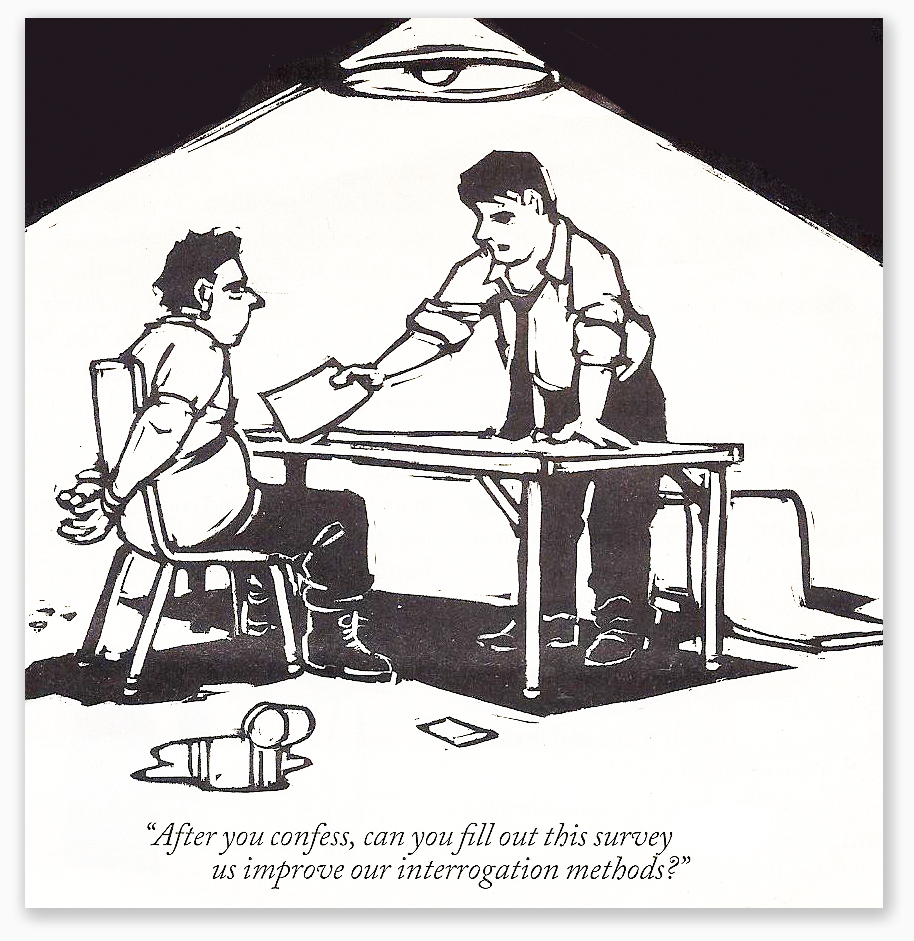We post news and comment on federal criminal justice issues, focused primarily on trial and post-conviction matters, legislative initiatives, and sentencing issues.

WHAT WAS THE LAWYER THINKING? 4TH CIRCUIT REMANDS § 2255 CASE TO FIND OUT
 James Pressley (aka Bubba, according to the court) was interrogated after an alleged drug buy. He said the interrogation was custodial, and no one read him his rights. The cop said it was a friendly, roadside consensual chat. Whatever it was, Bubba implicated himself and got convicted.
James Pressley (aka Bubba, according to the court) was interrogated after an alleged drug buy. He said the interrogation was custodial, and no one read him his rights. The cop said it was a friendly, roadside consensual chat. Whatever it was, Bubba implicated himself and got convicted.
On a post-conviction habeas corpus motion filed pursuant to 28 USC § 2255, Bubba claimed his lawyer rendered ineffective assistance by failing to file a motion to suppress his incriminating statements. Bubba said he asked counsel to file such a motion, but counsel never did so. The district court denied Bubba’s § 2255 motion without holding an evidentiary hearing. The court found Bubba admitted that he made the incriminating statements after the government offered potential benefits in exchange for cooperation, the cops told Bubba he was not under arrest, and Bubba voluntarily got into the car with the officers.
Last week, the 4th Circuit reversed. Bubba told a version of the interrogation that was much different from the district court’s. He said the police followed him, threaten to intercept him, surrounded him, and pointed weapons at him. But the § 2255 record did not show whether Bubba ever told his lawyer that. What’s more, while his lawyer provided an affidavit to the court, he did not explain any reasons – strategic or otherwise – for declining to file a motion to suppress.
District courts seldom hold hearings on § 2255 motions, and this case was no exception. The 4th said that here, “the record contains only a sworn statement from Pressley’s brother, who relayed a conversation with counsel in which counsel purportedly stated that he would not seek suppression because Bubba “made the statement on himself” and counsel “did not think [a suppression motion] would do any good…. We thus are left to speculate regarding what information counsel knew about the circumstances of the interrogation, and how he evaluated that information before deciding not to file a motion to suppress.”
 The Circuit conceded that “under the circumstances presented here, counsel could have made a reasonable and informed legal judgment not to file such a motion, after balancing the likelihood of success on the motion with the risk of requiring Pressley to testify at a suppression hearing.” But without knowing what counsel was thinking, Bubba’s § 2255 motion could neither be granted nor denied. “Without knowing what information was available to counsel at the time, or the tactical considerations that competent counsel would be obliged to consider, we cannot determine whether counsel acted within the wide range of professionally competent assistance when he refused to file a motion to suppress.”
The Circuit conceded that “under the circumstances presented here, counsel could have made a reasonable and informed legal judgment not to file such a motion, after balancing the likelihood of success on the motion with the risk of requiring Pressley to testify at a suppression hearing.” But without knowing what counsel was thinking, Bubba’s § 2255 motion could neither be granted nor denied. “Without knowing what information was available to counsel at the time, or the tactical considerations that competent counsel would be obliged to consider, we cannot determine whether counsel acted within the wide range of professionally competent assistance when he refused to file a motion to suppress.”
United States v. Pressley, Case No. 19-6222, 2021 U.S. App. LEXIS 7150 (4th Cir., March 11, 2021)
– Thomas L. Root

